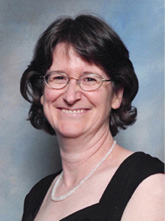By Michelle Corbin | STC Fellow
 In Editing Matters, Michelle Corbin covers matters (topics) about editing that matter (are of consequence) to communicators of all kinds. Watch this space to understand more about editing and what you can do to improve the quality of your content. To suggest a topic or ask a question, contact Michelle at michelle.l.corbin@gmail.com.
In Editing Matters, Michelle Corbin covers matters (topics) about editing that matter (are of consequence) to communicators of all kinds. Watch this space to understand more about editing and what you can do to improve the quality of your content. To suggest a topic or ask a question, contact Michelle at michelle.l.corbin@gmail.com.
Anyone who knows me knows that I am very passionate about technical editing. While I started out my career as a technical writer, I quickly discovered that I enjoyed the editing and revising tasks much more than the writing and creating tasks. When Andrea asked me to write a column for Intercom on editing, I jumped at the opportunity.
Let me explain a bit about the title of my first article. My column is called Editing Matters. The word matter is both a noun and a verb. As a noun, a matter is a topic. As a verb, to matter means to have importance. Matter has many, many definitions, and is used in many, many idioms, and to this word nerd, Editing Matters, was a perfect fit. (Of course, in technical communication, we must be more precise in our terminology, and a word being both a noun and a verb means that we should shy away from using such a word, but I’ll save that tangent for another article.)
I plan to cover the matters of editing from many views: technical communication, journalism, rhetoric, linguistics, and information architecture, to name a few. I do feel like editing, or technical editing, pulls from all of these disciplines. Technical editing is more than just wrangling the grammar, style, and punctuation of a language. As much as I love words, technical editing is about more than just the words.
I am sure that I will venture into theoretical matters, but I promise to try to bring it back to the practical matters. I try to keep up on the research in the editing space, but I’m pretty far away from my academic pursuits. I do have quite a list of resources that I will draw on and around which I built a technical editing workshop. I will most certainly draw on my years (and years) of experience as a technical communicator, development editor, terminologist, information architect, and Web editor.
I know that I will have to discuss the matter of who you are editing for—for yourself, for a SME (either a non-writer or a SME who fancies themselves to be a writer), or for technical writers. When editing your own writing, we will discuss the matter of how editing weaves its way throughout the information lifecycle. We will explore the ideas of “ownership” and “accuracy” and the role that technical writers or technical editors play, especially when editing the writing of SMEs. Teams of technical writers are sometimes lucky enough to have a dedicated technical editor; however, sometimes those teams implement a peer reviewing system where several people take on the matter of technical editing. The matter of how you edit depends greatly on whose writing you are editing.
Why does editing matter? To answer this question, I will summarize the premise of a Technical Communication article that I researched and wrote to justify my existence as a technical editor. In a nutshell, the premise is that most products are not released until after some amount of testing is done, so most technical communication should not be released until after some amount of editing is done. Technical editing comprises many types of editing (comprehensive editing, usability editing, and copy editing, just to name a few), just like the different types of testing. Technical editing is a quality assurance process. Editing matters because quality matters.
REFERENCE
Corbin, Michelle, Pat Moell, and Mike Boyd. “Technical Editing as Quality Assurance: Adding Value to Content.” Technical Communication 49.3 (August 2002): 286–300.


